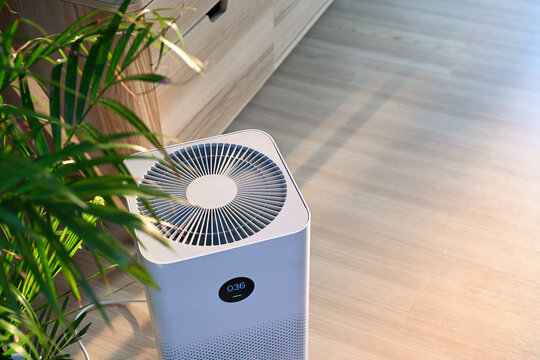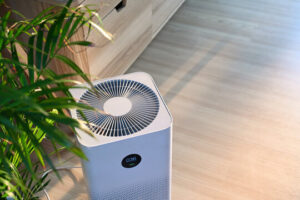As awareness of indoor air quality grows, more homeowners are turning to air purifiers to enhance their living spaces. With a wide variety of air purifiers available, choosing the right one can be overwhelming. In this guide, we’ll explore the different types of air purifiers—HEPA, UV, activated carbon, and more—along with their benefits, to help you make an informed decision.
1. HEPA Air Purifiers
Overview: HEPA (High-Efficiency Particulate Air) filters are designed to trap 99.97% of particles that are 0.3 microns in size. This includes dust, pollen, pet dander, and mold spores.
Benefits:
- Effective Filtration: HEPA purifiers are among the most effective options for capturing airborne allergens and pollutants.
- Health Benefits: Ideal for allergy sufferers and those with respiratory conditions, HEPA filters can significantly reduce triggers in the home.
- Quiet Operation: Many HEPA purifiers operate quietly, making them suitable for bedrooms and other quiet spaces.
Best For: People with allergies, asthma, or those living in areas with high pollen counts.
2. UV Air Purifiers
Overview: UV (Ultraviolet) air purifiers use UV light to kill bacteria, viruses, and other pathogens. Some models combine UV technology with HEPA filters for enhanced effectiveness.
Benefits:
- Germicidal Properties: UV light is effective at inactivating a wide range of microorganisms, making it a great option for those concerned about germs and bacteria.
- Chemical-Free Disinfection: Unlike chemical disinfectants, UV purifiers sanitize the air without leaving any harmful residues.
Best For: Households with vulnerable individuals, such as infants, elderly people, or those with weakened immune systems.
3. Activated Carbon Air Purifiers
Overview: Activated carbon air purifiers use a carbon filter to adsorb odors, gases, and VOCs (volatile organic compounds) from the air. They are often used in conjunction with HEPA filters.
Benefits:
- Odor Removal: Excellent for eliminating cooking smells, pet odors, smoke, and other unpleasant scents.
- Chemical Filtration: Effective at capturing harmful gases and chemicals, improving overall indoor air quality.
Best For: Homes with pets, smokers, or strong cooking odors.
4. Ionizer Air Purifiers
Overview: Ionizers release negatively charged ions into the air, which attach to positively charged particles, causing them to clump together and fall to the ground or get trapped on a collection plate.
Benefits:
- Reduces Particles: Effective at removing fine particulate matter, including allergens and dust.
- Low Maintenance: Typically require less frequent filter replacements compared to HEPA filters.
Best For: Those looking for a low-maintenance option, but be cautious as some models can produce ozone, which may be harmful.
5. Ozone Generators
Overview: Ozone generators intentionally produce ozone, a gas that can eliminate odors and pollutants. However, they are not recommended for continuous indoor use.
Benefits:
- Powerful Odor Removal: Effective in unoccupied spaces for removing tough odors, such as smoke or mold.
Best For: Temporary use in unoccupied spaces; not suitable for regular air purification in living areas due to ozone’s harmful effects.
6. Hybrid Air Purifiers
Overview: Hybrid air purifiers combine multiple technologies—such as HEPA, activated carbon, and UV light—into one unit for comprehensive air purification.
Benefits:
- Multi-Stage Filtration: Offers the benefits of various filtration methods, making them versatile and effective for diverse air quality issues.
- Convenience: One unit can handle multiple air purification needs, simplifying maintenance.
Best For: Homeowners seeking an all-in-one solution for comprehensive air purification.
Choosing the Right Air Purifier
When selecting an air purifier, consider the following factors:
- Room Size: Ensure the purifier is suitable for the size of the room where it will be used.
- Air Quality Needs: Assess your specific air quality concerns, such as allergies, odors, or pathogens.
- Maintenance Requirements: Consider the frequency of filter replacements and cleaning.
By understanding the different types of air purifiers and their benefits, you can choose the right model to improve the air quality in your home. Investing in the right air purifier not only enhances your living environment but also contributes to the overall health and well-being of your family.



